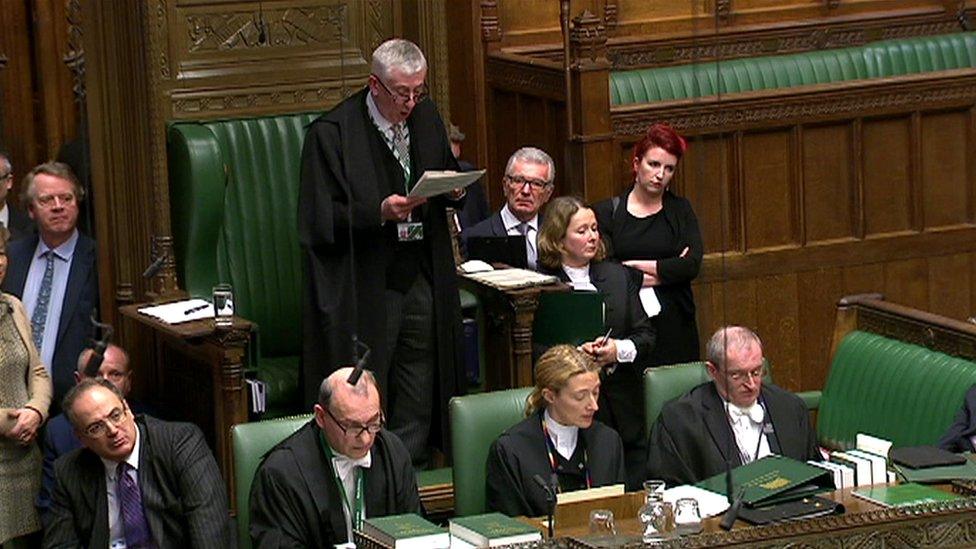New Commons Speaker Sir Lindsay Hoyle curbs Bercow era powers
- Published

Sir Lindsay Hoyle
And another chunk of John Bercow's legacy is chipped away...
His successor as Commons Speaker, Sir Lindsay Hoyle, has announced a new system for handling situations where the Chair makes a ruling that departs from Commons rules or traditions.
In his decade in the Chair, John Bercow stretched or, on occasions, shattered long-established conventions and the provisions of Commons standing orders.
Speaker Bercow's rulings on apparently technical questions, like the number of amendments that could be allowed in a debate on the 2013 Queen's Speech, the selection of amendments to supposedly unamendable "meaningful vote" motions and his interpretation of the meaning in standing orders of the word "forthwith" (which had previously meant that a motion was debated immediately, without the opportunity for amendments to be put) were all controversial, and the first two had serious repercussions.
It is arguable that his 2013 ruling, which effectively allowed Tory Brexiteers to put an amendment to the Queen's Speech calling for an EU referendum, was the first pebble in the Brexit avalanche.
John Bercow's rulings sometimes caused controversy
The power of the Chair to make such rulings is not exactly limited by the system announced by Sir Lindsay.
But it serves to highlight where a Speaker uses their power in a way that seems to go against the rules and conventions.
Sir Lindsay said that in the interests of transparency, he was creating a new system modelled on the power of accounting officers in government departments to "seek ministerial direction" when they believe they are being told to do something that is against the rules or outside normal policy.
In effect, they are requesting a written instruction, which would override their advice.
A similar procedure will in future apply where in the opinion of the Clerk of the House, the top adviser to the Speaker and the Commons, a ruling amounts to a substantial breach of Commons standing orders or of long-established conventions.
In those circumstances, the Clerk will be able to place a statement of their views in the , where it would be available to all MPs.
The effect would be to provide extra ammunition to MPs who wanted to challenge a controversial ruling by the Speaker.
The announcement was greeted by loud cheers, mainly from Conservative MPs, as it became clear that the Speaker was, sort of, renouncing Bercowesque powers to rewrite the rules and announcing a system which would, potentially, limit the powers of his office.
- Published17 January 2020
- Published20 January 2020
- Published23 January 2020